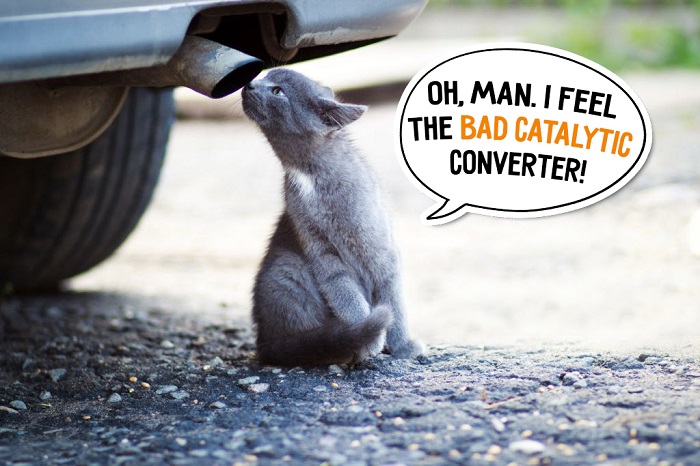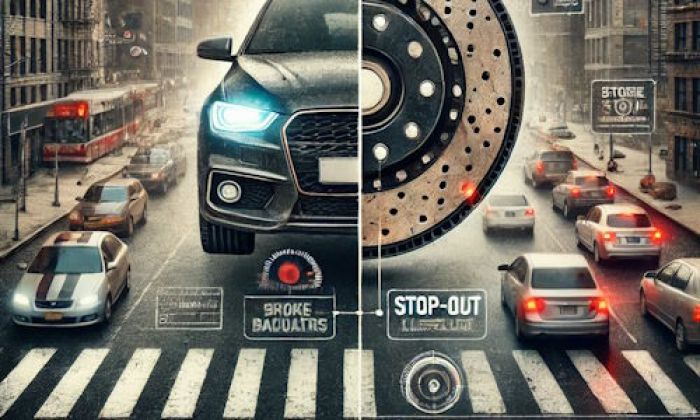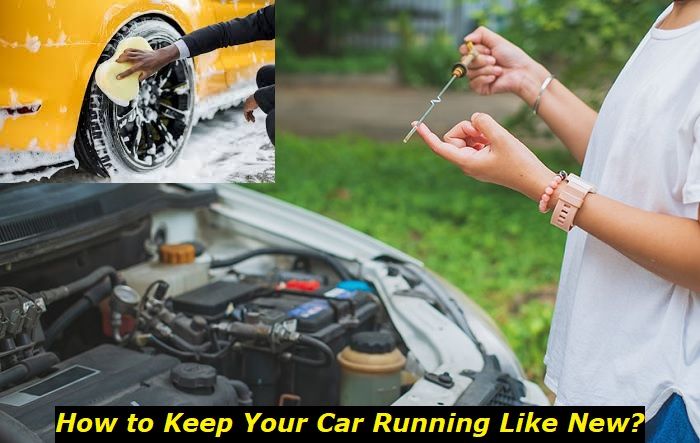
Since the very first gas car back in 1886, cars have been improving at a steady rate. However, no car is perfect, and thanks to ever more rigorous emissions regulation, cars have become extremely complex and are increasingly more prone to catalytic converter issues. If you were wondering which are the symptoms of a bad catalytic converter, be sure to read this article.
Here are the symptoms of a bad catalytic converter:
- Engine misfiring
- Subpar performance
- Rattling sounds
- Rotten egg-like smell
- Bad fuel economy
- Check engine light
- Failed emissions test
- Black smoke is coming out of the exhaust
- Your car stalls or jerks forward
- You remove the oxygen sensor and the car’s performance decreases
- Trouble starting the car
- Discolored converter housing
Engine Misfiring
Engine misfires are one of the most common symptoms of a bad catalytic converter and it usually indicates that your cats are overheating. The combustion process is greatly affected by a faulty converter and thus is unable to work properly. In order for your engine to work optimally, it needs the right ratio of oxygen and fuel, and if there is too much fuel in the engine it will cause your car to misfire because a great portion of that fuel can not be ignited.
Subpar Performance
Another fairly prominent symptom of a bad converter is poor acceleration and overall poor engine performance. This usually happens if the honeycomb mesh inside the converter gets clogged with a significant amount of carbon residue. This is a simple case of decreased efficiency because the engine needs to work harder in order to fulfill its duty. The most common performance issues associated with a faulty converter are laggy acceleration and inferior acceleration intensity.
Rattling Sounds
As mentioned previously, the catalytic converter is lined with a honeycomb material which can sometimes break, and if it does, it causes rattling sounds, especially on start-up. It's always best to take your car in for a proper diagnosis in order to make sure that integral engine parts are not to blame. Rattles such as these are bound to increase as time goes on so it's best to fix them as early as possible. As mentioned, rattles can be also caused by more severe issues and that’s why you should not drive your car if you notice them.
Rotten Egg-like Smell
A rotten egg-like smell coming from the back is a definite sign of a bad catalytic converter. This smell is Hydrogen sulfide which is emitted because the cats are unable to convert it into less harmful particles. If you come across this issue, you are better off investing in a brand-new converter. Whenever you sense any weird odors coming from your car you are likely experiencing issues with your internal components which means that you can not drive the car until these issues are fully resolved.
Bad Fuel Economy
If your catalytic converter is clogged, it means that your engine burns more fuel than usual. This can also happen because your oxygen sensor is unable to properly decide how much oxygen is needed thus the levels of fuel inside the engine are increased. If your fuel economy worsens at least by 10%, this is likely the issue. However, there are many possible reasons why your economy might worsen over time, so be sure to keep an eye on any other symptoms listed in this article because they are known to co-exist with a bad fuel economy.
Check Engine Light
All modern-day engines are equipped with advanced air to fuel ratio sensors called air-fuel ratio meters. These meters are designed to constantly monitor the balance of air and fuel inside the engine, and if the levels are unbalanced, it usually ends up in a check engine light coming on. The check engine light is there to notify you that your car is unable to convert all the harmful pollutants into less harmful substances which means that you are also likely going to fail your emissions test as well.
Failed Emissions Test
Failed emissions testing can also sometimes indicate faulty catalytic converters. This happens because your cats are unable to filter out all the harmful particles. If you do fail your test, be sure to exactly pinpoint the cause in order to fix it properly. The US government mandates emissions testing for all vehicles usually once a year, so be sure to keep your catalytic converter in a good shape in order to pass these tests successfully.
Black Smoke Coming Out The Exhaust
Probably one of the easiest ways to tell that your cats are at fault is if you come across black smoke coming from your exhaust. This can be due to many different reasons, but more often than not the cats are to blame. The reason why this happens is that the pressure in the converter increase to high levels due to clogging. The pressure builds up to a certain degree which causes thicker and darker exhaust gasses. However, this also happens because the air-to-fuel ratio is mismatched which tends to also increase fuel consumption.
Your Car Stalls Or Jerks Forward
If your catalytic converter clogs up a lot, it’s bound to jerk your car forward. However, if your converter completely clogs itself, your car will stall because of a high-pressure build-up. Don’t try and start the car up in order not to cause any additional damage. Clogged catalytic converters are a rather common issue that can be dealt with by either replacing the converter entirely or trying to mend it if possible.
You Remove The Oxygen Sensor And The Car’s Performance Decreases
If you are a mechanic or someone who simply knows his/her way around cars, you can run a simple test in order to find out if your catalytic converter is malfunctioning. You need to locate the car’s oxygen sensor under the hood and remove it to test your car’s performance afterward. Of course, you are only doing this temporarily, but if the performance of your car decreases substantially, it means that your catalytic converter is to blame.
Trouble Starting The Car
The main purpose of a catalytic converter is to convert toxic pollutants into less harmful substances in order for them to be released into the atmosphere. If your catalytic converter is clogged or unable to fulfill its duty for various other reasons, exhaust gasses will build up inside the exhaust and cause high pressure in the engine. This will either make it difficult to start the car up or prevent it completely.
Discolored Converter Housing
As mentioned previously, your converter is tasked with transforming harmful exhaust gasses into less harmful substances. This means that the converter tends to operate at a higher temperature because this makes the transformation process a lot easier. However, the rich mixture that forms inside the converter can even melt the inside of the converter if too much unburnt fuel reaches the converter thus discolorating the converter housing from the outside.
FAQ Section
How Much Does A New Converter Cost?
A new converter usually costs between $1300 and $2000 depending on the car in question and the supply chain. Always try and find an original replacement part, even if it costs more. On the other hand, labor costs associated with catalytic converter replacements usually range between $75 to $200, but these are also known to vary depending on a myriad of different factors.
Is It Worth Repairing A Catalytic Converter?
It usually depends on if your cats are clogged or damaged. If they can be repaired properly, then it's safe to do so. However, even if it's sometimes possible to repair the converter, it may only be a short-term fix. As such, be sure to ask your mechanic how damaged your converter is and try to come up with a reasonable assessment as to how long the repaired catalytic converter should last.
How Long Does A Catalytic Converter Last?
An operational converter should last at least 50-70k miles, but most of them are good for up to 80k or even 100k miles. In other words, 5-10 years is to be expected. However, if you sense any issues listed in this article, your catalytic converter is likely nearing its end even though the converter might only be a few years old. Many external factors affect how long a converter can last so be sure to use these predictions as a reference point only.
Is Unleaded Fuel Necessary?
It's essential that you use unleaded fuel, otherwise, your cats are bound to suffer at an earlier stage. This means that your cats will be under less stress during their lifetime. However, if you do opt for leaded fuel, you might experience symptoms such as engine knocking which is known to be caused by low-quality fuel mixtures.
What Happens If I Don’t Fix My Catalytic Converter?
If you don’t fix your catalytic converter the pressure will build up to a dangerous level, which usually results in complete engine failure. It’s crucial to repair or replace your catalytic converter the moment you notice it malfunctioning because you can cause all sorts of additional issues if you don’t.
About the authors
The CarAraC research team is composed of seasoned auto mechanics and automotive industry professionals, including individuals with advanced degrees and certifications in their field. Our team members boast prestigious credentials, reflecting their extensive knowledge and skills. These qualifications include: IMI: Institute of the Motor Industry, ASE-Certified Master Automobile Technicians; Coventry University, Graduate of MA in Automotive Journalism; Politecnico di Torino, Italy, MS Automotive Engineering; Ss. Cyril and Methodius University in Skopje, Mechanical University in Skopje; TOC Automotive College; DHA Suffa University, Department of Mechanical Engineering






Add comment